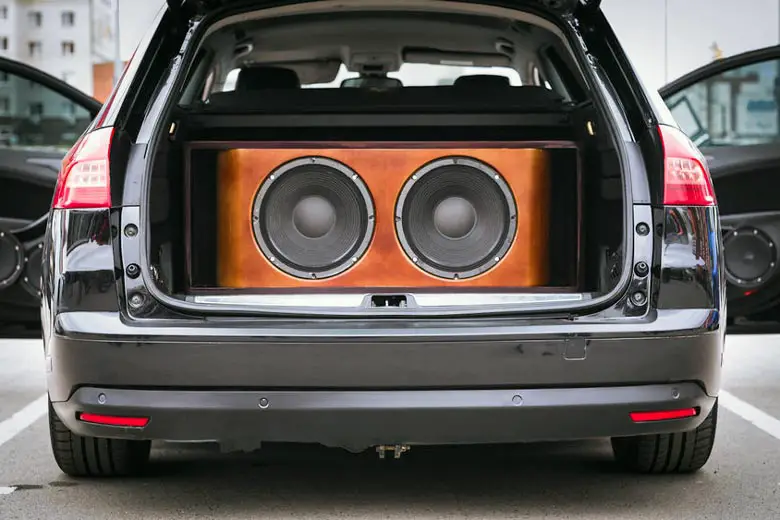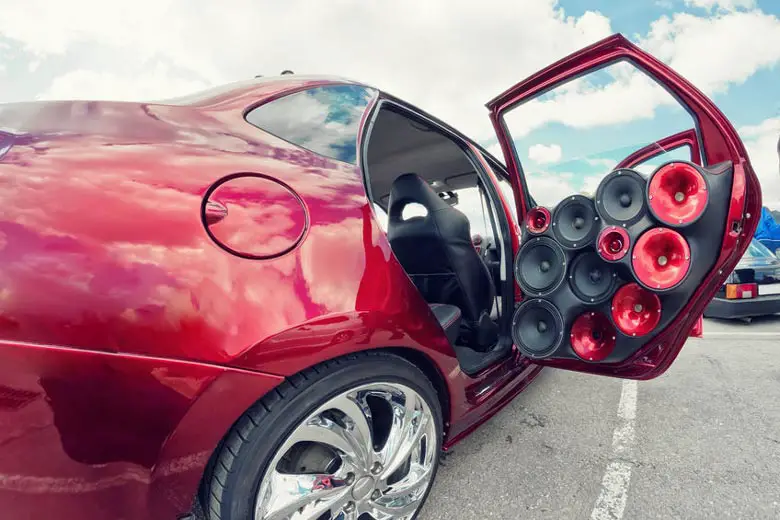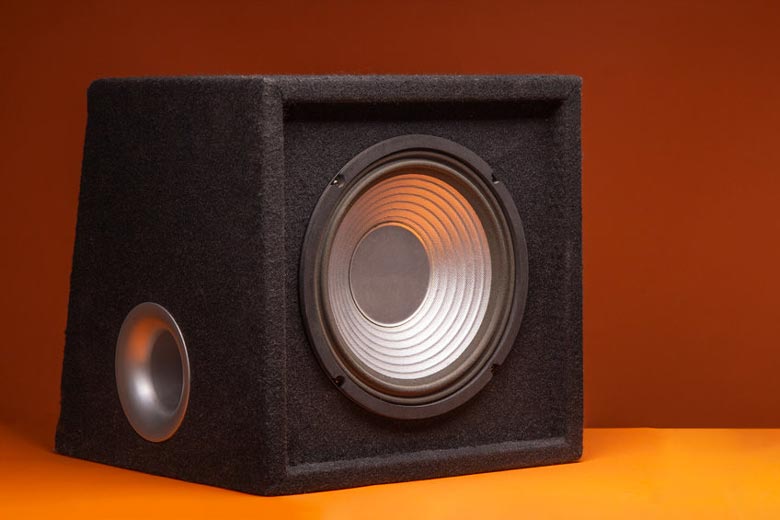Subwoofers and amplifiers are fantastic devices that make listening to your vehicle’s audio system more pleasurable. Still, using one can lead to a police officer suspecting that you are using it for illicit purposes like disturbing the peace or causing excessive noise.
It is not illegal to have subwoofers in your car as long as the noise level does not disturb the peace of the neighborhood you are driving. In addition, it should not distract you from being conscious of your surroundings which could lead to collisions.
The laws surrounding subwoofers vary from state to state. You need to make sure that you’re within your local laws when installing a subwoofer in your vehicle. This article will look at what makes having a subwoofer in your car illegal and how to avoid prosecution because of improper use of your subwoofer.

How Can I Avoid Getting a Ticket for Having a Subwoofer in My Car?
The best way to avoid getting a ticket for having a subwoofer in the car is to get one that doesn’t draw too much attention to itself.
Having a subwoofer in the car can be great, but it can also make you vulnerable to getting tickets. That’s because most state laws prohibit motorists from operating vehicles that have been altered or modified to produce excessive amounts of noise.
To avoid getting a ticket for having a subwoofer in your car, keep the volume down. You will likely get pulled over if you play your music too loud. If you are listening to music at a reasonable volume, most police officers won’t bother you.
According to the United States Environmental Protection Agency (EPA), the laws regarding car audio systems vary from state to state.
These laws state that maximum noise levels are higher during the daytime than at nighttime. No one wants to listen to your music while they’re trying to get their beauty sleep, after all.
In some areas, such as on the highway, it is permissible to play loud music. However, it is usually illegal to crank up the volume when driving in a neighborhood where it would disrupt others’ peace.
However, some locations are safer than others. Officers can only give you a ticket while driving on public roads and parked in public parking lots. If you are in a private location, someone has to call in a noise complaint before officers can intervene.

In most jurisdictions, you will get a ticket if you disturb the peace while driving with loud music. Every officer has discretion when they issue a warning or cite someone for disturbing the peace. Still, generally speaking, if you aren’t bugging anyone around you, then you probably won’t get bothered by the law either.
The average cost of getting a ticket for having a loud sound system in California and many other states is $100 minimum.
This amount may not seem like much, but it can add up quickly if you get multiple citations.
How Loud Can You Legally Play Music In a Car?
Loudness is a subjective quality, but if you are too loud, you may be contributing to noise pollution. Noise pollution is loudness that exceeds a certain threshold.
The human ear can hear sounds between 20 Hz to 20 kHz in everyday life, although this range decreases with age.
You can legally play music in a car at loudnesses of 50 and 100 decibels. Most police officers measure this loudness from a few feet away from your vehicle. However, this loudness level will also cause discomfort and gradual hearing loss.
The lower limit of human hearing is 0 dB, and the upper limit is around 130 dB. Noise below 65 dB may not be harmful if exposed to it for 8 hours or less.
If you expose yourself to a noise level of 85 dB for longer than 8 hours, it could cause permanent damage to your hearing. Here’s a look at how some areas regulate their laws when it comes to sound systems:
USA Laws
Important: This is just a general guide. Please read your state’s laws and regulations regarding sound systems in your car.
According to the California Legislative Information, it is illegal to play a radio or stereo so loudly that you can hear it 50 feet (15.24 m) away.
The maximum volume level to play music on their car stereo is 55 decibels.
The fine for violating any of these laws is $80.00
UK Laws
The following guidelines apply to car audio system owners in the United Kingdom.
The maximum sound output level that is legal in the UK is 102dB.
When someone complains about noise pollution, the authorities will record this complaint and then come out and measure the sound output of your car audio system or vehicle.
If you are above the legal limit, then your car stereo will be confiscated and only returned when you have modified it not to exceed the legal volume limit (a certificate will be required to prove this).
You will also be fined up to 1000 pounds, even on your first offense.
How Do Police Measure Noise?
Police typically use a decibel meter device to determine whether your music is too loud. Decibel meters are used as a guideline for citations, although officers can still use their judgment to write tickets based on what they hear.
If you have your radio loud enough that people can hear it from 50 feet away, you could be ticketed for noise pollution or disturbing the peace.
Suppose a police officer determines that your bass levels are over the legal limit, typically between 80 and 100 decibels within a few feet of your vehicle. In that case, you could also receive a citation.
Why It Isn’t Safe To Listen to Loud Music in Your Vehicle
Noise pollution affects health and behavior in humans. It can cause increased stress levels and high blood pressure. Exposure to high-level noise for an extended period can cause hearing loss. Hearing loss is not reversible once it occurs, so it is vital to prevent such damage from occurring.
This law has made many people install equipment in their cars that will allow them to adjust the volume to listen only at safe decibel levels.
A car stereo that is too loud can be annoying for others, but it also creates a dangerous situation for the driver. Potential risks include:
- Distractions: A loud stereo may cause you to miss necessary signals such as horns or sirens.
- Hearing loss: Loud music through headphones may damage your hearing.
- Threats to safety: It is challenging to hear emergency vehicles or pedestrians when listening to loud music in a moving car. In addition, it is illegal in some states to drive with headphones or earphones.
What To Look for When Choosing Speakers for Your Car
When choosing a car’s sound system, use the following guidelines to make sure you don’t violate state laws:

- Do not install a subwoofer box or amplifier behind the driver’s seat. Placing a subwoofer here can be a significant distraction and is illegal in most states.
- For car stereos installed in the dashboard, do not extend them to be visible outside the vehicle.
- When installing speakers under the seats, ensure they face up and won’t project any sound through the floorboards. Outward-moving sound waves can distract other drivers on the road, which is illegal in most states.
- For car stereos with built-in amplifiers, make sure they input an external amplifier to moderate noise levels.
- If your car stereo has a CD player located in the trunk or dash of your vehicle, do not hook it up to a CD changer that sits in your glove compartment. It is illegal in many states to play music when driving with a CD player located within reach of your hands.
- Many choose to place a subwoofer in the trunk. If you do, try to prevent trunk rattle from your car’s subwoofer.
Conclusion
As long as you familiarize yourself with the laws and regulations regarding the use of sound systems in your state, you shouldn’t get in trouble for installing a subwoofer or amplifier in your vehicle.
Not only is regulating the loudness of your subwoofer good for your surroundings, but it can also save you a great deal of trouble, such as not being involved in any collisions or losing your hearing because of thunderous noise.
